Emmy Award-winning journalist Soledad O'Brien on filling the gaps for underserved communities
Emmy Award-winning journalist and documentarian Soledad O'Brien was the keynote speaker at the 20th annual SmartWomens Luncheon & Expo in Savannah. After she hopped off the stage, quality of life reporter Laura Nwogu talked with O'Brien about her experiences as an Afro-Latina journalist, filling in the gaps for minority communities, diving into the humanity of stories and why knowledge is power.
Subscribe to The 912: Amplifying the Black community in Savannah, featuring Black stories, art, food and more
Laura Nwogu: First of all, your speech was wonderful.
Soledad O’Brien: “Thank you.”
LN: "In it, you described working in many lower-level jobs. Did you ever feel discouraged? And how did you, yourself, walk yourself through those fears and those obstacles?
SO: "When you fetch your 9,000th cup of coffee (laughs), it can feel like, 'I'm going to be stuck here and I don't see a path.' I think what I've always tried to do is to think of myself as a skill set and try to grow my skill sets so that when I'm going for new jobs, that one, I kind of scared myself; I'd stretch to do something. And that I also felt, even in situations where I was kind of stuck for a little bit, I gather information.
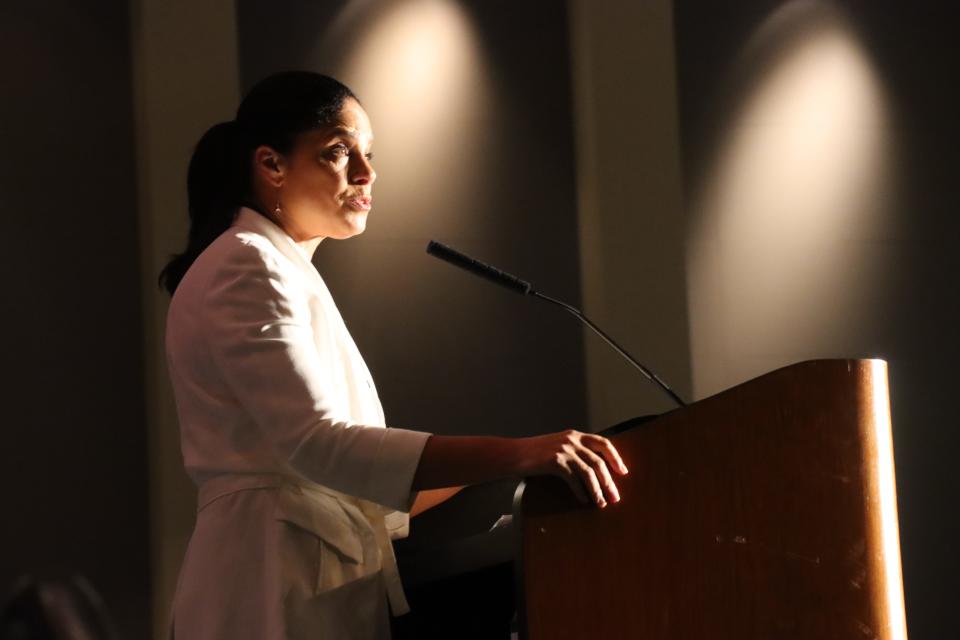
“For example, when I worked in Boston, I was trying so hard to get on air; they wouldn't let me. I remember the Boston Marathon was happening. I was an associate producer, and I could not be named a producer. I couldn't get the next thing up. And I would just volunteer to help on the Boston Marathon. Later, when I would go interview for jobs, I would talk about producing the Boston Marathon. In that particular case, all our printers failed, and so we had to write the entire show longhand. So you tell a story: here's a problem, and here's how I solved it. I could have said, they're not paying me, but I didn't. I think that really helped me constantly grow my skills and say, 'If they're not going to value me here, no hard feelings. I'm going to take those skills and go somewhere else.' Sometimes it's easy when you feel stuck to be like, ‘Oh, forget it. I'm just not going to do anything. And I think that's not a good strategy."
Breast Cancer by the Numbers: Near 100% survival rate when caught in earliest stages
Thinking pink: Early detection, mammography key to fighting breast cancer
LN: As a Black woman, as an Afro-Latina woman, there are different experiences and perspectives that we have. How have those experiences helped you navigate your journey in journalism?
SO: “When I started, I think I was very quiet. As someone kind of at the bottom end of the totem pole, I didn't really feel I had the right to weigh in. Would a producer really want to hear my point of view? As I climbed the ladder, I became much more comfortable, and maybe even much more aggressive, about saying, ‘Yeah, well, I disagree with this perspective,’ or ‘You know what? I actually don't want to do that story. I think this is wrong.’ When we did our ‘Latino in America’ doc, I actually killed the first one because I thought it was terrible. And that came with time and power.
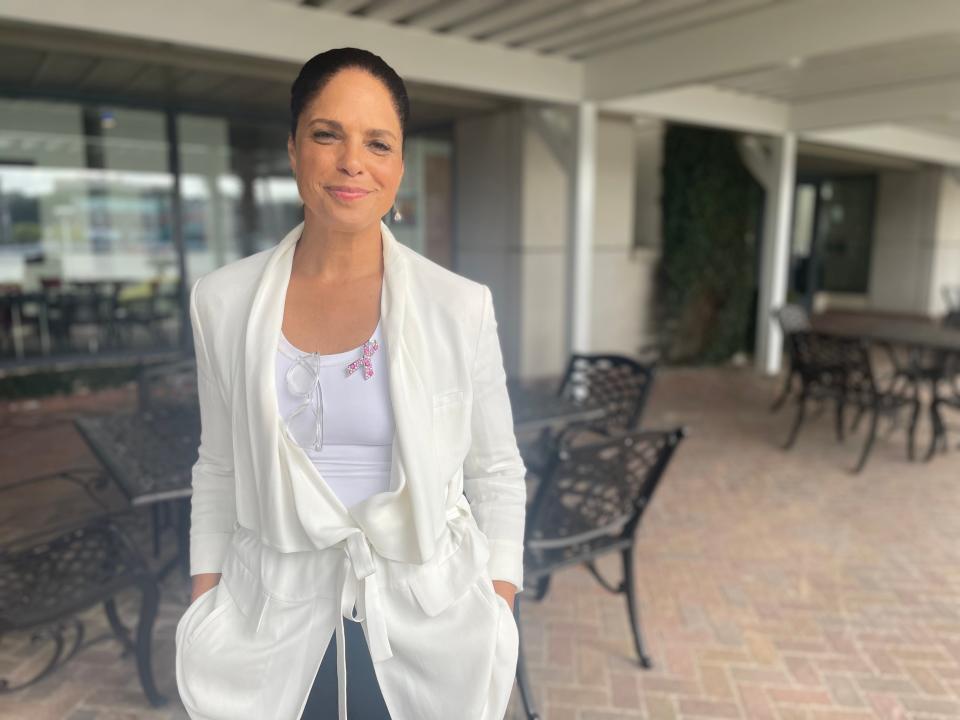
“That's actually why I advocate a lot for diverse voices in newsrooms, so that around a table when decisions are being made, people who know communities can say, ‘That's just not accurate,’ or ‘We're going to embarrass ourselves if we do this,’ or ‘I have lots of sources in this community,’ or ‘I speak the language. Why don't I go find people who we can bring into the fold?’ Otherwise, you always have this sense of people covering a community like outsiders. What community wants to be covered like theirs some fringy outsider in a community? As I've gotten older, I've become much more comfortable leveraging my voice and then demanding about like, ‘Listen, if we don't have a diverse team, I'm not doing it.’
LN: You mentioned in your speech that knowledge is power and it is the key to successful programs like the Telfair Mammography Fund. When you look at events like these and the opportunity to speak at them, how important is it for you to use your platform like this to serve underserved communities?
SO: “I got into journalism because I thought the whole point was to hold people accountable and to also elevate the stories of people who actually don't necessarily get a platform. And what we found on the show that we do, ‘Matter of Fact,’ is we started by interviewing a lot of politicians. Classic Sunday morning show. And then we realized, well, we want to talk about homeless moms, why don't we just go find some and interview? We want to talk about soybean farmers, let's just go get one and ask him some questions. Let's center the people in the story. As you know, often people speak for people all the time. And so we actually stopped inviting elected officials. We don't have any. Ever.
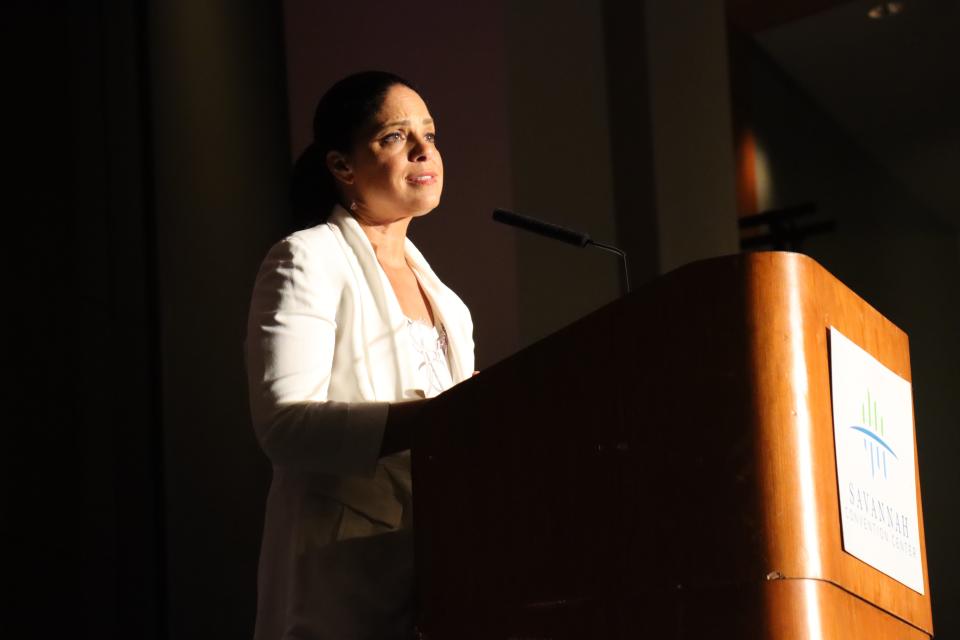
“We really found a couple of things. One, we could educate people better about policy. And also, the coverage became less partisan. It wasn't this person fighting with this person. It was, OK, insulin: Why is it not covered? Why is it so expensive? What is the history of insulin in America, and here's a woman who has an experience.
“We really started liking the idea of these conversations that were less partisan and more about solutions and understanding what was working in this part of the country for these people. That's kind of interesting, and then our ratings went up. So, everybody got on board with that.”
Read more: Advances in ultrasound technology help detect cancer better in women with dense breasts
The October forecast?: Heightened awareness of breast cancer risks
LN: It’s like you said, diving into the humanity of these stories.
Do you think the media has gotten better at highlighting marginalized communities and their stories? If not, what more can be done?
SO: "I think there has been progress, in all fairness. I think when we talk about politics, though, it’s always covered like it's a game. ‘Oh, he’s got a zinger in. Oh, this person said that,’ versus, ‘But this policy is going to have this impact on these particular people.’ We sort of forget about the people and cover it like winning a debate. I understand the spectacle, but as journalists, we shouldn't cover the spectacle; we should cover the policies. Are they fundable? What would they do? How would it work here in our backyard?
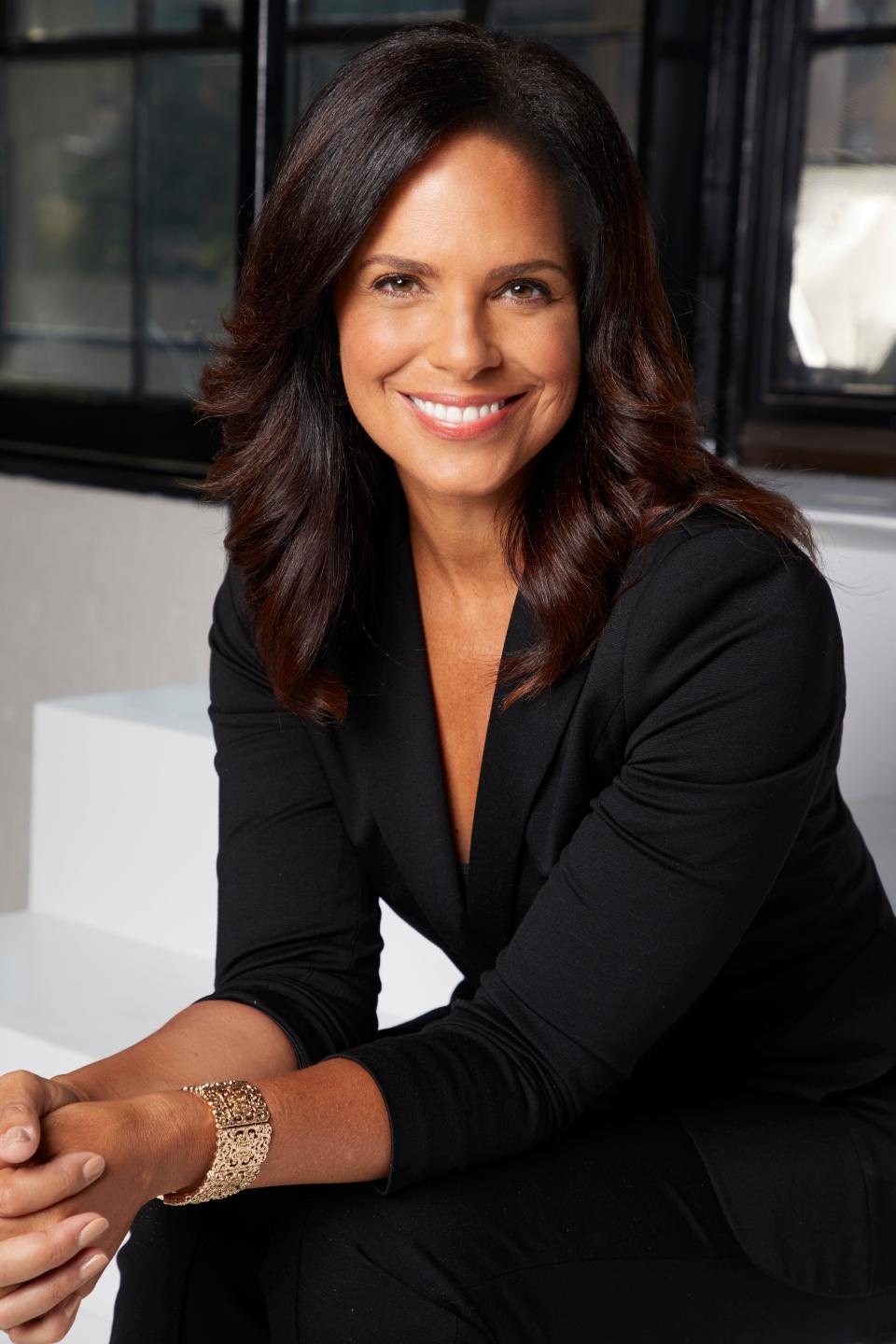
“I don't think that's revolutionary. I think that's like basic 101 journalism. So, on one hand, I do think, certainly, more coverage of minority communities. The way we even talk about policing today in the media is so much different than the way we did it when I was a journalist where you basically got a press release and you print it. But I think we have a long way to go in making sure that we're really elevating the issues and not necessarily the personalities and the drama and the conflict. I find that incredibly annoying.”
LN: Shifting toward your documentary coming out next week, “The Rebellious Life of Mrs. Rosa Parks,” how does it feel to finally get it out there? And what do you want people to take away from the documentary?
SO: It’s a really great documentary, and so I hope that people will watch it. It's coming out on, Peacock. It starts streaming on Oct. 19. I think the story of Rosa Parks has been kind of caught in this one little moment set on the bus. And you would think she didn't really appear before then and afterward when actually the real story is the story of a very rebellious woman who, from her childhood, was absolutely focused on racial equity. Rosa Parks loved Dr. King and Malcolm X. Like, huh? That's kind of interesting. Rosa Parks supported the Black Panthers. Huh? That's a little bit different than the little angelic little lady.
LN: It’s debunking the myths that we thought we knew.
SO: "So many myths. And then you have to ask yourself, why do we have those myths? Why do we like the concept of civil rights as accidental? One day, she just decided her feet hurt, and just wanted to sit down. And she would tell the story over and over again of, ‘I was no more tired than I was after any other work day. I was tired of being pushed around.’ And basically, she was saying, reporters are getting my story wrong. Our goal in this documentary is to write that narrative to make it correct so people understand the true story of a very rebellious central figure in the civil rights movement."
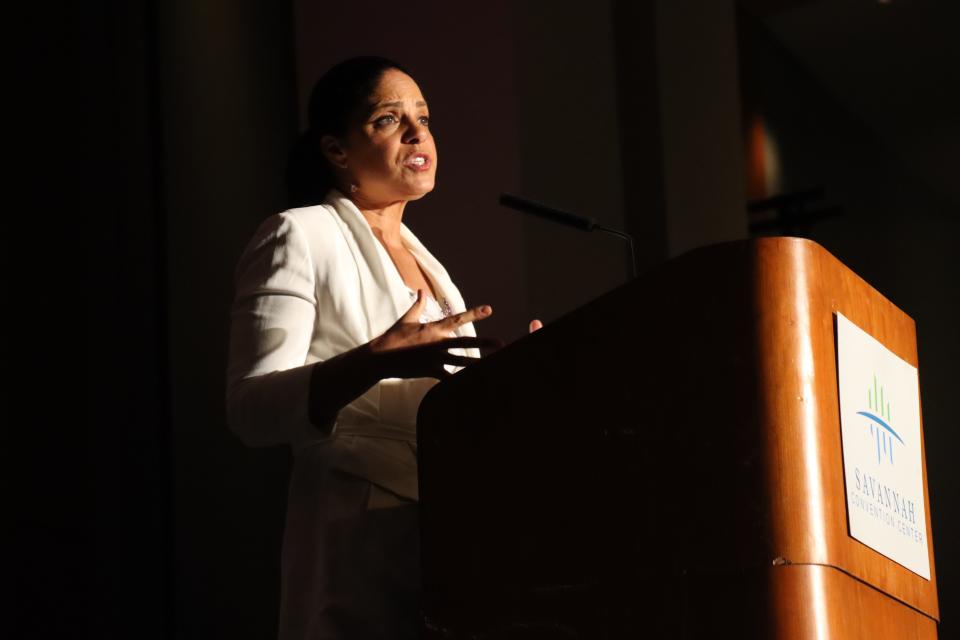
LN: From all that you’ve learned in your career, what advice would you give up-and-coming journalists?
SO: “It is very stressful at times especially, I think, for journalists of color who are young. So you really have to recognize the stress, not lose your mind, have a good friend who you are talking to all the time and realize you're in it for the long haul. You're in it to make a difference and cover stories fairly, justly, without bias, without favor of communities that sometimes don't get an opportunity and do that in every story that you cover. Hold yourself to a high standard, and if you continue to turn out excellent work after excellent work after excellent work, at some point, you look back and you're like, ‘Dang, I have had a pretty great career and it's building.’ That's important, but don't get sucked under by stressful times. Steel yourself. Go into work.”
This interview was featured in this week's edition of The 912 newsletter.
Laura Nwogu is the quality of life reporter for Savannah Morning News. Contact her at LNwogu@gannett.com. Twitter: @lauranwogu_
This article originally appeared on Savannah Morning News: Soledad O'Brien visits Savannah, talks making an impact in communities

